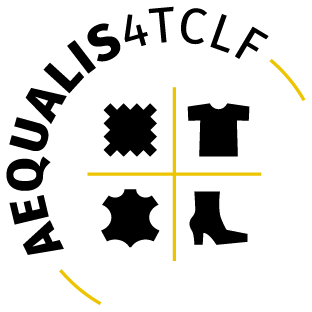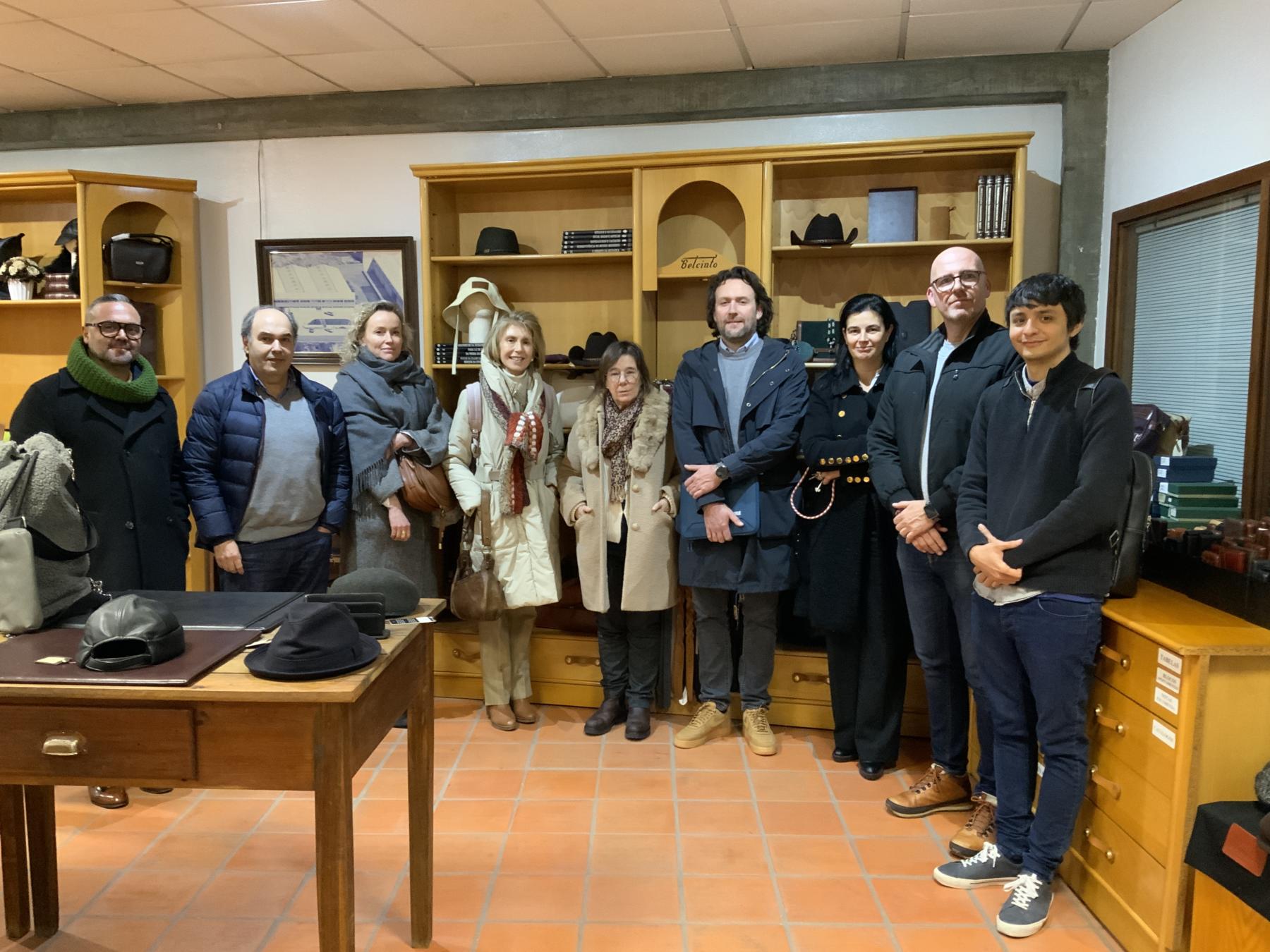Erasmus+
AEQUALIS4TCLF


Details
Reference code:
EDU-2023-PI-ALL-INNO-101139988
Duration:
2024 – 2028
Grant:
€3 807 754
The consortium:
- The European Apparel and Textile Confederation – EURATEX (Belgium)
- European Confederation of the Footwear Industry – CEC (Belgium)
- Confederation des Associations Nationales des Tanneurs et des Megissiers de la Communaute Europe – COTANCE (France)
- Tekstiili – Ja Vaatetusteollisuus Finatex RY (Finland)
- MODINT b.v. (Netherlands)
- Lithuanian apparel and textile industry association (Lithuania)
- Asociace Textilniho-Odevniho-Kozedelneho Prum (Czechia)
- Zveza inzenirjev in tehnikov tekstilcev Slovenija (Slovenia)
- Croatian Chamber of Economy CCE (Croatia)
- Privredna Komora Srbije (Serbia)
- Tampereen Ammattikorkeakoulu OY (Finland)
- Stichting Hogeschool Van Amsterdam (Netherlands)
- Klaipedos technologiju mokymo centras (Lithuania)
- Technicka Univerzita V Liberci (Czechia)
- Univerzita Tomase Bati Ve Zline (Czechia)
- Solski Center Celje (Slovenia)
- Sveuciliste U Zagrebu (Croatia)
- Univerzitet U Kragujevcu (Serbia)
- Obrtnicko Uciliste – Ustanova Za Obrazovanje OD (Croatia)
Contacts
The European Apparel and Textile Confederation – EURATEX
- Website: www.euratex.eu
- Address: Rue Belliard 40, Box 2, 1040 Brussels (Belgium)
Creating More Sustainable and Innovative TCLF Industries with Thriving Skilled People
Description
The textiles ecosystem, composed of the textiles, clothing, leather and footwear industries (TCLF), faces critical challenges in upskilling and reskilling its workforce to enable the green and digital transition. According to the European Skills Agenda, the lack of adequate skills in the industry requires a joint effort from Member States, companies, and social partners to achieve ambitious objectives for upskilling and reskilling within the next five years. Furthermore, the EU Strategy for Sustainable and Circular Textiles, adopted on 30 March 2022, sets out a framework to facilitate the transition of the textiles ecosystem towards increased circularity and sustainability by 2030 and announces actions along the TCLF value chain to this end.
To address these challenges, the EU Pact for Skills for the Textiles ecosystem provides a framework for mobilising all actors in joint actions. This includes apprenticeships and training schemes within companies, modernisation of existing or new vocational education and training centres, cross-country collaborations for knowledge transfer, and a Skills Observatory to map skills requirements. In addition, partnership with Educational Vocational Training providers and higher education is needed to design tailored and hands-on curricula to supply workers with the required new job profiles.
The S4STCLF – Skills4Smart TCLF Industries 2030 project, coordinated by EURATEX between 2018 and 2022, constituted the first step into a new dynamic, sustainable community of diverse private/public actors committed to supporting skills development and employment opportunities across the EU in the TCLF sector. The METASKILLS4TCLF project is the second Blueprint project for the TCLF industries. It aims to consolidate and update part of the former Blueprint project outcomes, including skills strategy, curricula and contents, and a strong skills partnership with relevant stakeholders. In addition, it updates the previous skills partnership developed in the former project and adds three more in a total of 12 national skills strategies. The three EU umbrella organisations, EURATEX, CEC and COTANCE, are also partners in this project.
The AEQUALIS4TCLF Blueprint project aims to address the skills gap in the TCLF sector in the European Union by providing a broader geographical scope of cooperation and anticipating and responding to new skills gaps with innovative educational multilevel resources. Furthermore, it will emphasise equality in the sector and address the specific needs of migrant workers in certain countries. The project will involve relevant stakeholders such as industry representatives, chambers of commerce, employers’ associations, HE and VET providers embodied in 8 European countries: Belgium, Czechia, Croatia, Lithuania, Finland, Netherlands, Slovenia and Serbia (as third country associated with the Erasmus+ programme). These countries significantly contribute to the TCLF sector’s production value and employment in the EU-27. Together, they represent a total production value of 15,669 million euros, 9.68% of the total TCLF production in the EU-27. Additionally, the textile, clothing, leather, and footwear industry in these countries employed 393.000 persons in 2020, representing 20% of all employees in the EU-27, with 305.000 of these employees being women.
Objectives
- Unify Europe in skilling and reskilling the TCLF workforce by expanding the reach of the METASKILLS4TCLF and S4STCLF Blueprint projects from 11 countries to 18 through the AEQUALIS4TCLF project.
- Address the skills gap in the TCLF industry by promoting partnerships, identifying specific skills needed, and developing new curricula for a more sustainable industry.
- Strengthen existing partnerships and establish new ones to ensure effective collaboration among relevant stakeholders to address the skills gaps in the industry and promote regional and national TCLF Skills Partnerships.
Expected Outcomes
- New curricula for upper and post-secondary VET levels and tertiary levels that address the green and digital skills needed to support the industry’s transition to a more sustainable and circular economy.
- New learning materials and programmes that align with the new curricula, ensuring that the education and training programmes offered to the industry’s workforce are engaging and practical.
- New training programmes in selected European countries is essential for ensuring that the new programmes are practical and relevant.
- Workshops and guidelines promoting social inclusion, safety of workers in their workplace against discrimination and violence, improvement of productivity and competitiveness, and ensuring compliance with legal and ethical standards.
Funded by the European Union. Views and opinions expressed are however those of the author(s) only and do not necessarily reflect those of the European Union or the European Education and Culture Executive Agency (EACEA). Neither the European Union nor EACEA can be held responsible for them.


